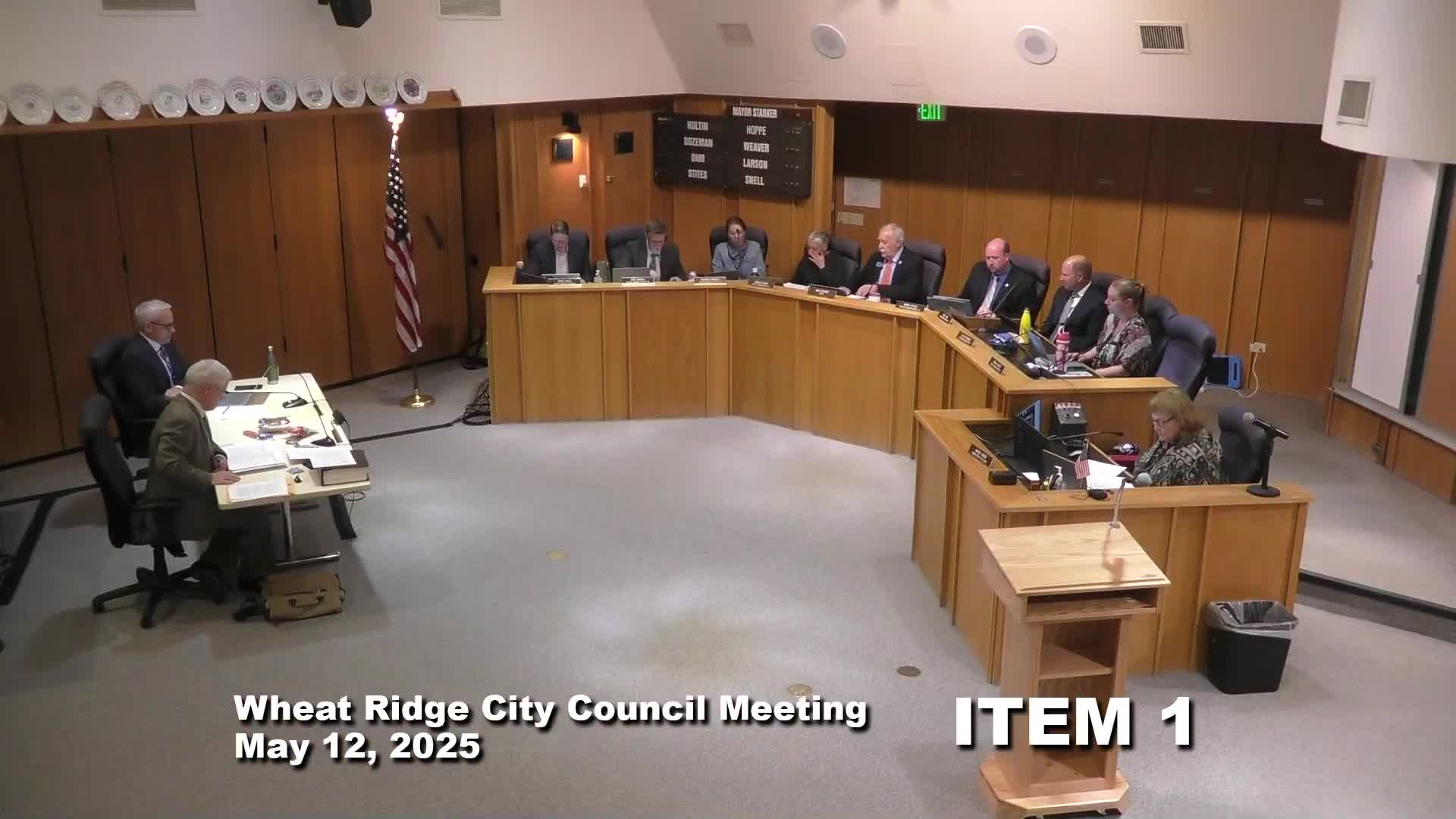Article not found
This article is no longer available. But don't worry—we've gathered other articles that discuss the same topic.
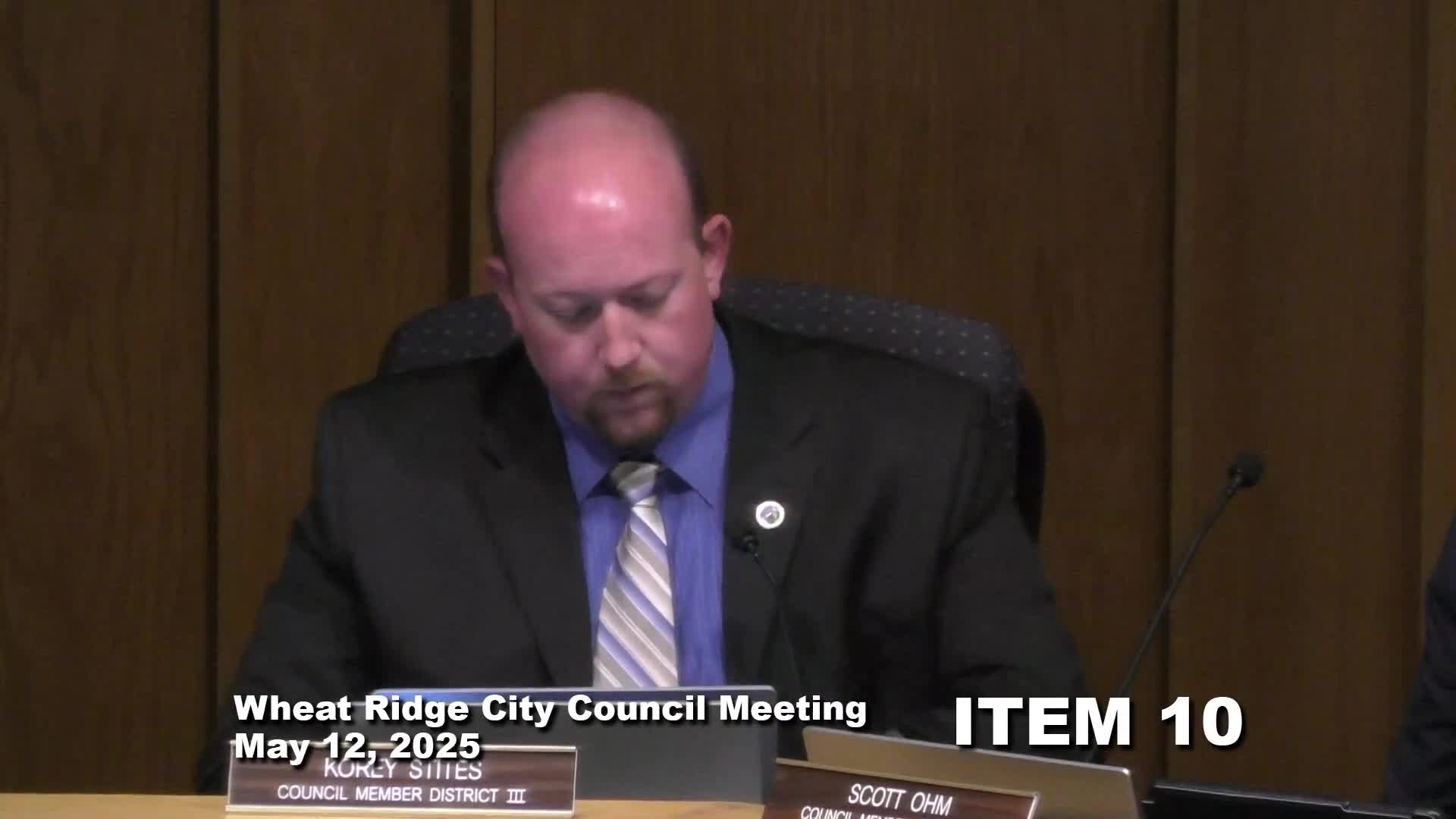
Wheat Ridge approves updated school resource officer agreement with Jefferson County R-1
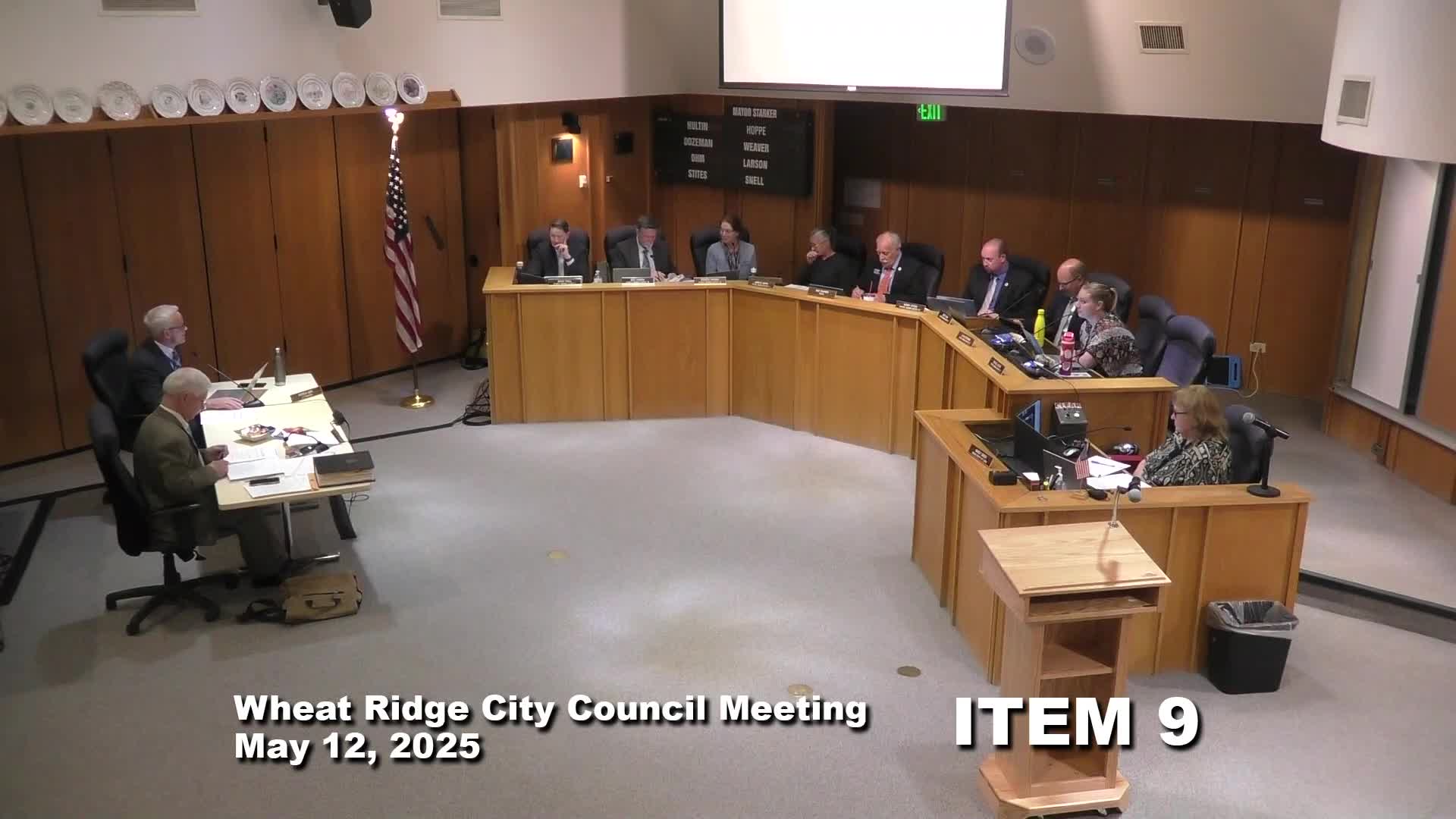
Wadsworth project contract completion date extended to 2030 to allow closeout and federal audits
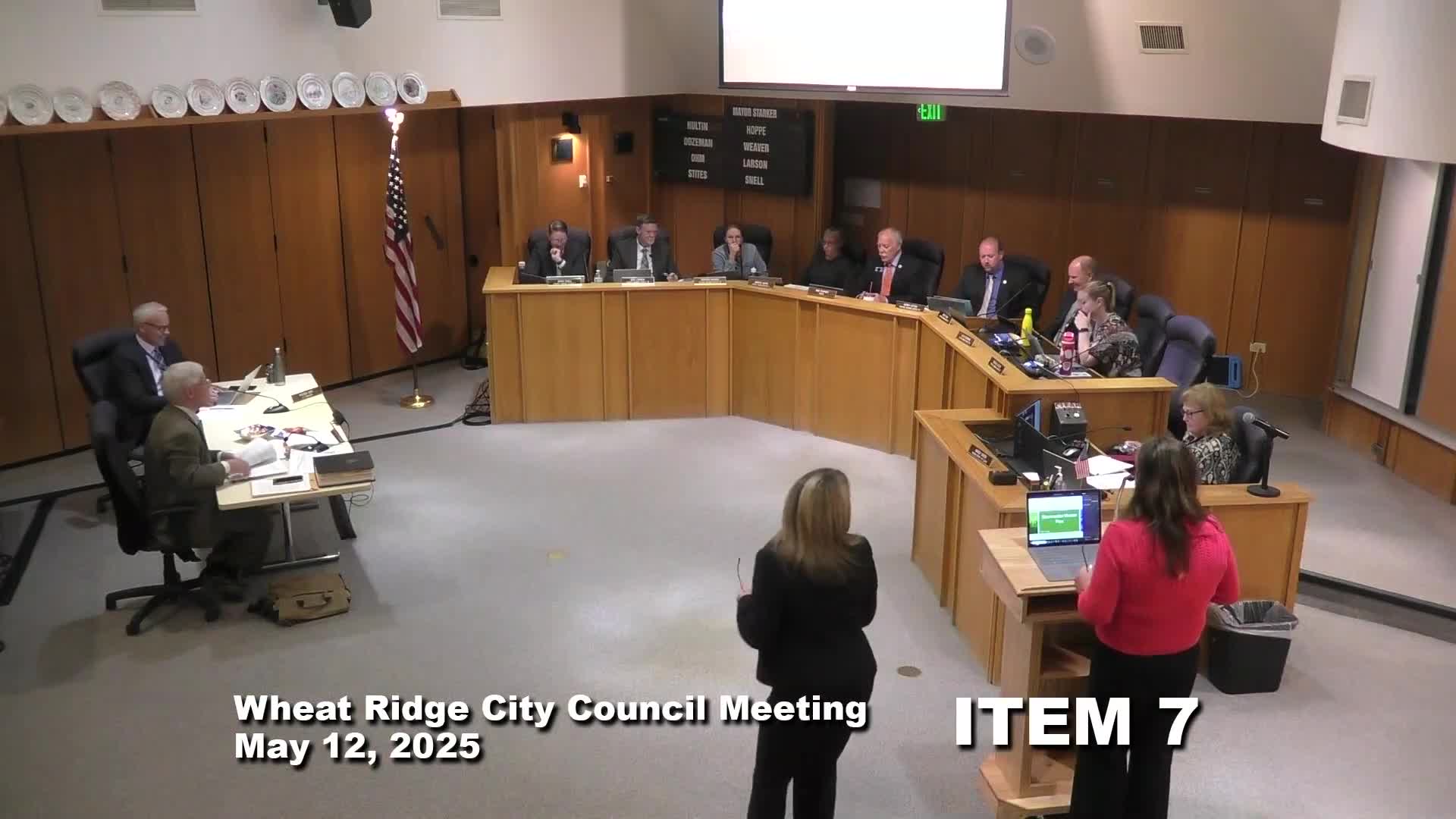
Wheat Ridge adopts $51.5 million stormwater master plan; five regional projects prioritized
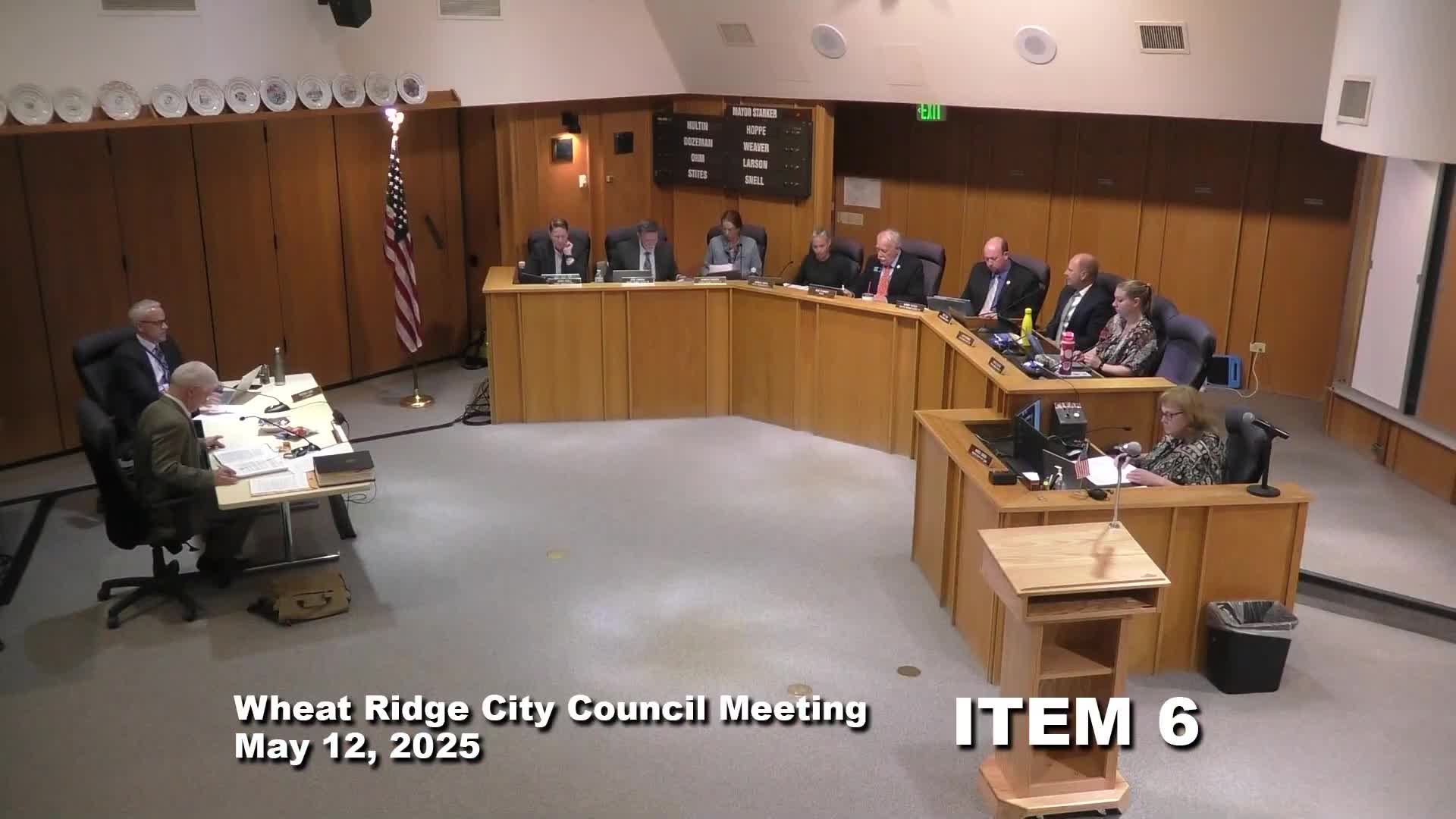
Wheat Ridge moves to preserve Fruitvale School Lofts as long-term affordable housing; council approves agreements
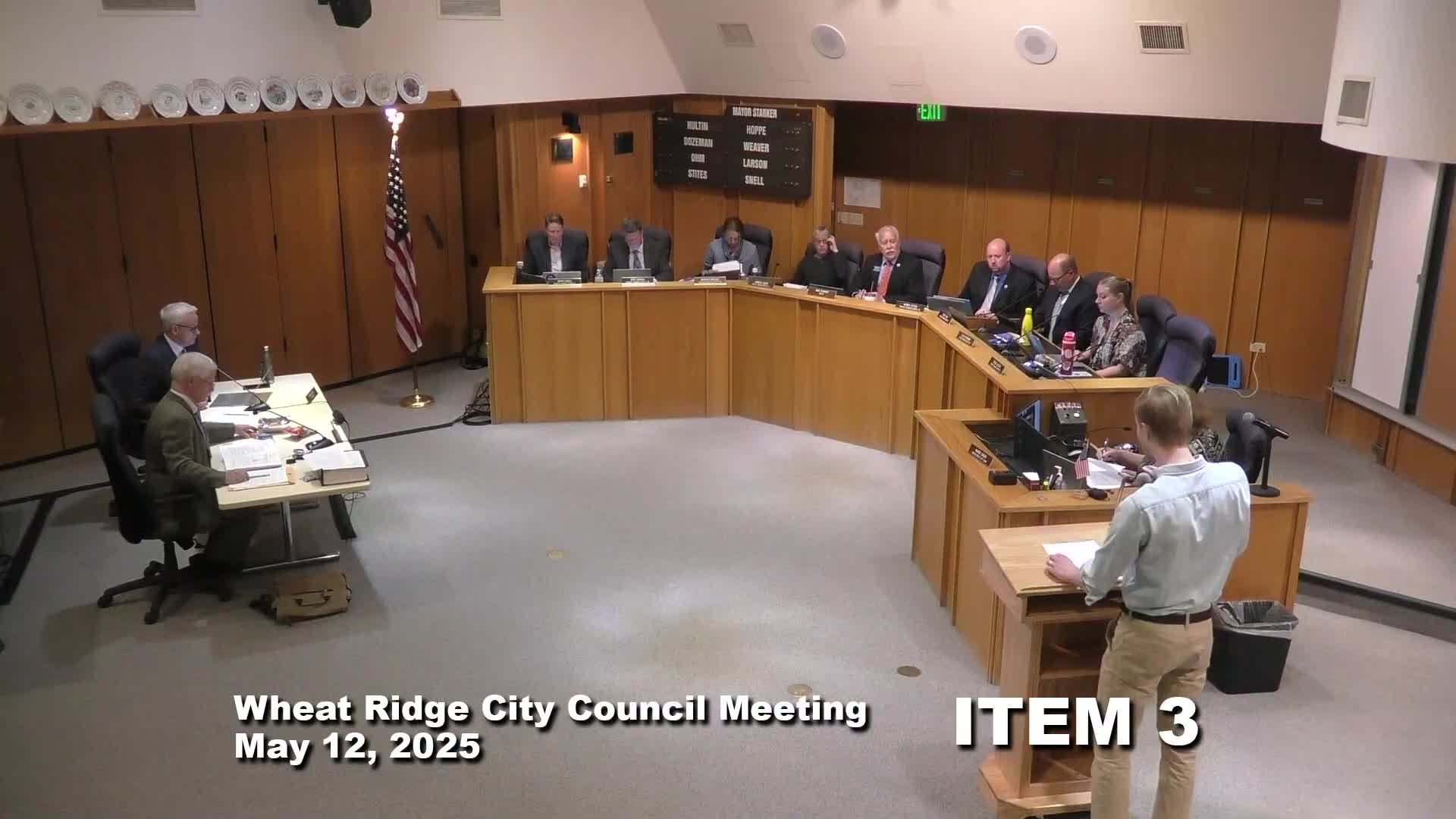
Wheat Ridge adopts ADU ordinance changes to comply with state law, removes broad owner-occupancy deed restriction
